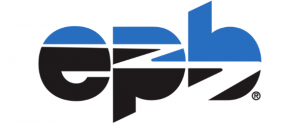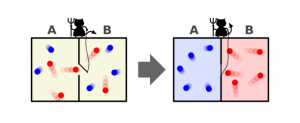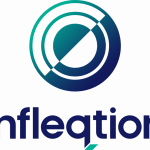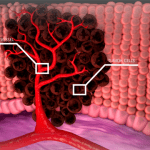Quantum News Briefs December 1: EPB of Chattanooga and Qubitekk launch commercial quantum network to accelerate development & adoption of quantum products; Notre Dame engineers use quantum computing to develop transparent window coating that blocks heat, saves energy; SBU awarded $6.5M grant to build a new quantum internet test bed + MORE

Quantum News Briefs December 1 EPB of Chattanooga and Qubitekk launch commercial quantum network to accelerate development & adoption of quantum products; Notre Dame engineers use quantum computing to develop transparent window coating that blocks heat, saves energy; SBU awarded $6.5M grant to build a new quantum internet test bed + MORE.
*****
EPB of Chattanooga and Qubitekk launch commercial quantum network to accelerate development and adoption of quantum products
 EPB of Chattanooga and Qubitekk have joined together to launch America’s first industry-led, commercially available quantum network designed for private companies as well as government and university researchers to run quantum equipment and applications in an established fiber optic environment. EPB Quantum Network℠ is a quantum-as-a-service offering that will provide quantum technologists with fiber optic infrastructure that integrates the latest foundational quantum equipment and software to accelerate their process for bringing quantum technologies to market.
EPB of Chattanooga and Qubitekk have joined together to launch America’s first industry-led, commercially available quantum network designed for private companies as well as government and university researchers to run quantum equipment and applications in an established fiber optic environment. EPB Quantum Network℠ is a quantum-as-a-service offering that will provide quantum technologists with fiber optic infrastructure that integrates the latest foundational quantum equipment and software to accelerate their process for bringing quantum technologies to market.
EPB Board Chair Vicky Gregg described how the project addresses a critical national priority while also aligning with EPB’s commitment to economic development in the Chattanooga area it serves. “With the growing global focus on the potential for quantum technologies to solve problems that would require decades of conventional computer processing, both U.S. companies and the federal government are investing billions of dollars in this emerging sector,” Gregg said. “EPB Quantum Network gives Chattanooga the opportunity to attract new investment while accelerating breakthroughs that could make a real difference for our community and the nation as a whole.”
EPB’s primary partner in the project is Qubitekk, a foremost leader in designing, building and integrating the components for quantum networks, a precursor to the future development of the quantum-enabled internet. EPB Quantum Network is equipped with Qubitekk’s Bohr IVTM, a proprietary quantum networking system that generates, transmits and measures qubits.
Dr. Duncan Earl, president and CTO of Qubitekk, Inc. “EPB Quantum Network powered by Qubitekk is purpose-built infrastructure that allows quantum technologists to run their solution collaboratively with other technologies while retaining their proprietary data and intellectual property.”
Companies and researchers interested in learning more about using EPB Quantum Network to accelerate their quantum technologies to market can learn more at EPBQuantumNetwork.com.
Click here to read press release in-entirety.
*****
Notre Dame engineers use quantum computing to develop transparent window coating that blocks heat, saves energy
 Transparent radiative coolers (TRCs) can be used for buildings and cars to help address climate change challenges. A transparent radiative cooler (TRC), allows visible light to come in and keeps other heat-producing light out. Researchers estimate that this invention can reduce electric cooling costs by one-third in hot climates compared to conventional glass windows.
Transparent radiative coolers (TRCs) can be used for buildings and cars to help address climate change challenges. A transparent radiative cooler (TRC), allows visible light to come in and keeps other heat-producing light out. Researchers estimate that this invention can reduce electric cooling costs by one-third in hot climates compared to conventional glass windows.
Tengfei Luo, the Dorini Family Professor of Energy Studies at the University of Notre Dame, and postdoctoral associate Seongmin Kim were able to design their best-in-class TRC by using quantum computing combined with machine learning.
The TRC is made up of multiple ultra-thin layers of materials that must be assembled in a precise configuration. By constructing a computational model of the TRC, researchers were able to test each possible configuration of layers in a fraction of a second to identify the optimum combination and order of materials.
Guided by these results, they fabricated the new coating by layering silica, alumina and titanium oxide on a glass base — topping it off with the same polymer used to make contact lenses. The result was a 1.2 micron-thick coating that outperforms all other heat-reducing glass coatings on the market.
“I think the quantum computing strategy is as important as the material itself,” said Luo. “Using this approach, we were able to find the best-in-class material, design a radiative cooler and experimentally prove its cooling effect.” Click here to read article in-entirety.
*****
SBU awarded $6.5M grant to build a new quantum internet test bed
 Stony Brook University has been awarded a $6.5 million grant from the Long Island Investment Fund to construct a new Quantum Internet Test Bed, part of $46.5 million in grants for three regional projects announced by New York State Governor Kathy Hochul on November 29.
Stony Brook University has been awarded a $6.5 million grant from the Long Island Investment Fund to construct a new Quantum Internet Test Bed, part of $46.5 million in grants for three regional projects announced by New York State Governor Kathy Hochul on November 29.
Stony Brook University, in collaboration with Brookhaven National Laboratory (BNL), will construct a new $13 million Quantum Internet Test Bed. The Long Island Quantum Internet Test Bed will be a network of five nodes that are physically connected using commercially available optical fiber. It will be overseen by the Long Island Quantum Internet Center, located at Stony Brook and in partnership with BNL.
The center will catalyze new technologies to accelerate today’s internet functionality, to improve the security of our communications, and to enable dramatic advances in computing. It will grow to include other New York State universities, laboratories and industry partners with research teams dedicated to investigating and implementing the new applications of quantum technology in the context of telecommunications and the internet. The project will establish Long Island as a global hub of quantum internet technology development and bring together researchers, educators, and investors in a collaborative effort to accelerate the commercialization of quantum internet technologies.
The $350 million Long Island Investment Fund, included as part of Governor Hochul’s FY 2023 Enacted Budget, focuses on projects that will support and grow the regional economy, enhance communities and have lasting economic impacts across Long Island. The Long Island Investment Fund has invested $56.5 million, leveraging another $122 million in public and private dollars, to help drive economic growth on Long Island, and will create hundreds of new jobs on Long Island and support the education and training of thousands.
*****
New quantum computing feat is a modern twist on a 150-year-old thought experiment ‘Maxwell’s Demon’
 A team of quantum engineers at UNSW Sydney has developed a method to reset a quantum computer—that is, to prepare a quantum bit in the ‘0’ state—with very high confidence, as needed for reliable quantum computations. Quantum News Briefs summarizes.
A team of quantum engineers at UNSW Sydney has developed a method to reset a quantum computer—that is, to prepare a quantum bit in the ‘0’ state—with very high confidence, as needed for reliable quantum computations. Quantum News Briefs summarizes.
The method is surprisingly simple: it is related to the old concept of ‘Maxwell’s demon’, an omniscient being that can separate a gas into hot and cold by watching the speed of the individual molecules.
“Here we used a much more modern ‘demon’—a fast digital voltmeter—to watch the temperature of an electron drawn at random from a warm pool of electrons. In doing so, we made it much colder than the pool it came from, and this corresponds to a high certainty of it being in the ‘0’ computational state,” says Professor Andrea Morello of UNSW, who led the team.
“Quantum computers are only useful if they can reach the final result with very low probability of errors. And one can have near-perfect quantum operations, but if the calculation started from the wrong code, the final result will be wrong too. Our digital ‘Maxwell’s demon’ gives us a 20x improvement in how accurately we can set the start of the computation.” Click here to read original Phys.org article.
Sandra K. Helsel, Ph.D. has been researching and reporting on frontier technologies since 1990. She has her Ph.D. from the University of Arizona.



















